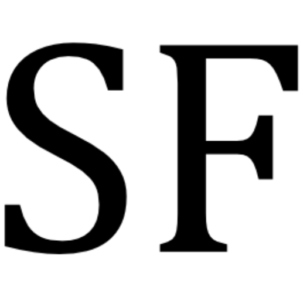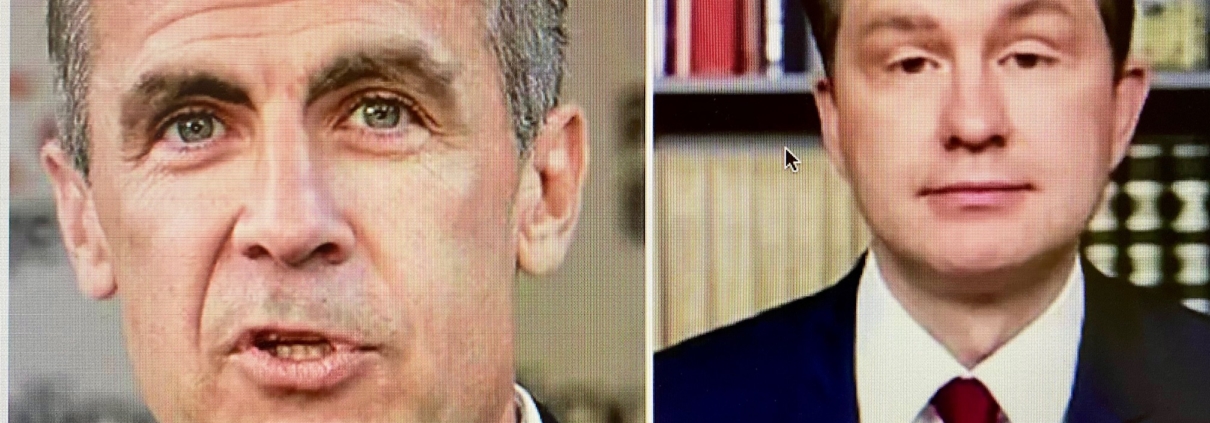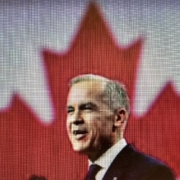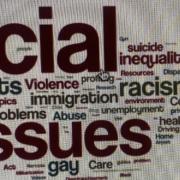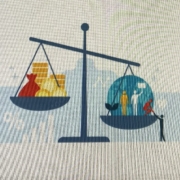Canada’s Choice This Election
Later this month, Canadians will be voting in what is effectively a referendum on the future of Canada. The overriding issue is President Trump and the global economic uncertainty he has unleashed at home and abroad. Canada, as one of the US’s closest neighbours and previous ally, is directly in the cross hairs of the disaster unfolding south of the border.
Make no mistake, while technically at peace, we are going to the polls to elect a wartime Prime Minister: A leader who is up to the challenge of bringing Canadians together to fight for the very survival of the country. A leader with the gravitas to lead on the world stage. A leader who has experience in managing a major international crisis. A leader who shares our vision of Canada and hopes for its future.
This is not a question of the local candidate. Given the centralization of power in Canada, a vote for a party candidate is a vote for the leader. This is necessarily even more so in this crisis.
So how do we make this decision in the current atmosphere of misinformation and rancour? Contrary to what some suggest, a vote is neither a Valentine’s Day Card where one votes according to whomever is liked / disliked the most or a telegram to convey displeasure or approval with a candidate or specific issue. Instead, given the unusually high stakes, we must exercise our right to vote for the future of our country keeping in mind that more than ever before we are making a strategic choice of the kind of country we want to live in. And we will be accountable for that choice.
Before going on, a reminder for those who do not intend to vote. This is your country too. You have an obligation to educate yourself in the issues and options and to exercise your right to have a say. We saw how in the US recent election, an estimated 89 million Americans (36% of those eligible) did not vote. Their decision to not vote, for whatever reason, may have resulted in Trump’s win. In many countries, people risk their lives to vote. It is that important. Where people cannot even be bothered to do so in a so-called democracy, they cannot credibly thereafter complain about the loss of their rights and freedoms.
The Canada that we Want
In making this important decision, the first task is to assess our situation and decide on the kind of country we want to live in. What challenges and opportunities are we facing? Top of mind for most is the global economic uncertainty that has been the result of Trump’s first few months in office and the clear, unmistakable threats to our national sovereignty emanating from the White House. However, close behind are the issues relating to the economy, housing and affordability. Climate change, while a sleeper issue in this campaign, continues to threaten our future.
Our top immediate concern is to meet the existential crisis Trump represents. While no one can predict exactly what will happen, there has been a lot of talk about the remaking of the global sociopolitical order into two main power blocs, an authoritarian one and one that (we hope) continues to have democratic governance. A ‘brown’ economy which takes no responsibility for addressing or preventing climate change or a ‘green’ one where social and environmental sustainability are necessarily part of all decisions. On April 28th we will decide which of these blocs we want to belong to and, thus, who our allies will be. Personally, I am all hands down in favour of the green democratic bloc.
Our decision on whether we want to be part of the brown authoritarian bloc or the green democratic one then determines the type of country we want Canada to be. Our issues of affordability, housing and other negative social indicators are signals that some of the same societal disrepair evident in the US is also present here in Canada as well as the rest of the world.
These issues did not happen overnight. Over the last few decades, the western love affair with right wing neoliberalism[1] combined with a dedication to the freedom of the individual (absent a corresponding responsibility to society) has, particularly in the United States, led to extreme levels of income inequality, social distress and alienation which Trump has capitalized upon. Far from trickling down to the benefit of the majority as had been promised, this ideology has led to probably the greatest transfer of wealth ever to the top echelons of society. Recent wars, a pandemic and increased inflation however proved to be the spark that ignited the neoliberal kindling leading to the worldwide resurgence of the far right.
Our signing of the Free Trade Agreement with the US in 1986 brought us great prosperity and a closer integration with what, with hindsight, is a very sick country. Blinded by the benefits of accessing the US economy, no one questioned the compromises we made in return for these prosperous years. Instead, we became increasingly dependent upon and subservient to the US.
Climate change, despite the urgency of the issue, has received less attention to date. However, whether we fully commit to do our bit in trying to build a more sustainable world or double down on ‘Drill Baby Drill’ and let the devil take the next generation, (the current direction of the US) is an unavoidable part of deciding on our nation’s path.
How to make our decision
We need to identify the key questions to ask and attributes we would like to see in the candidates. In doing so, we, the voters, need to consider their previous behaviour, experience and the values that drive their choices. As any good executive search consultant whose business it is to find the best and most suitable candidate for an important position will tell you, these are the best (in most cases) indicators of future performance. Considerin the proverb that ‘birds of a feather flock together’[2], we are also interested in who they associate with. Who supports them? Endorses them?
A word (or two) about platforms. The accepted practice for the undecided seeking to be diligent about voting has always been to consult party platforms as an indication of what parties value and might do if in power. However, my uber cynical twin suggests platforms more likely say what parties think the electorate wants to hear. More importantly, there is no ability to enforce compliance with a platform or to invalidate a government’s actions on the basis that it was not contained in their list of promises or commitments. Residents of Nova Scotia got a master class in this recently when they gave the Progressive Conservatives a supermajority in the recent election. In their first days and weeks of power, the Conservatives promptly acted on several fronts in what many consider to be an authoritarian manner, despite none of these initiatives appearing in their platform or even hinted at.
Most importantly, platforms are limited in their helpfulness because in our complex world (nowadays arguably closer to chaos than complexity) no one can predict what is going to happen during the government’s term in office. In our topsy-turvy environment, what is a good idea, or even possible, one day may the very next day be impossible and/or inadvisable. Simply put, we do not and cannot know the issues that governments will face or the decisions they will have to make.
Instead, we need to get a sense of the values that are important to the candidates and that will be their guide when they face difficult trade-offs. Are they likely to be concerned to balance short term demands with the needs of future generations? Have they shown good judgement? Will they listen to different perspectives and make decisions based upon what is best for the country? Do they have the humility to allow them to take advice and feedback and to learn from their mistakes? Will they put the interest of their country ahead of their (or their party’s) own? Do they have first-hand experience with how things work both nationally and on the global stage? Do they have the gravitas that will serve them in the international corridors of power? In short, do they have the experience, the temperament, the values and the judgement to safely lead us in these turbulent times in peace, and God forbid, in war?
This is a tall order, but this is what we are looking for. In making our assessment I suggest keeping in mind the following questions:
- What is their vision for Canada?
- What leadership experience do they have, particularly during a situation of several co-existing crises?
- Who will be best to reflect and protect our Canadian values?
- What type of leader do we want both at home and representing us on the world stage?
Academics and Career
Both Carney and Poilievre had similar starts in life. While Poilievre was adopted, they both grew up in a family in Alberta in which both parents were teachers. Carney’s mother stayed at home with the kids until he was 10 when she went back to school and ultimately took up teaching as a career. Their academic and career experiences were however quite different.
Carney
Carney received a BA in economics from Harvard, and a Masters’ degree and doctorate in 1993 and 1995 at Oxford. He worked with Goldman Sachs before joining the public service as deputy governor of the Bank of Canada in 2003. He became senior associate deputy minister for the Department of Finance Canada in 2004 and in 2007 was named Governor of the Bank of Canada where he was responsible for Canadian monetary policy during the 2008 global financial crisis. In 2013 he was appointed Governor of the Bank of England where he led their response to Brexit and the early phase of the COVID-19 pandemic. He then moved to the private sector serving as chair and head of impact investing at Brookfield Asset Management and as chair of the Board for Bloomberg L.P. He was appointed UN special envoy for climate action and finance and served as Vice Chair and later Chair of an International Finance Group working to build a more resilient international financial structure from that affected by the 2008 collapse.
Carney’s recent book, Value(s): Building a Better World for All lays out his vision for Canada and suggests that economic and social values have become blurred and that we have gone from living in a market economy to a market society. He argues that we need to rethink and rebuild Canada before it is too late, proposing that the values of sustainability, solidarity and responsibility must be embedded in all decision making.
Poilievre
Poilievre became interested in politics in high school and became active in the Reform Party and the Progressive Conservative Association of Alberta. He worked for TELUS doing corporate collections and later briefly as a journalist for a conservative weekly magazine. In 2003 Poilievre founded 3D Contact Inc. which provided political communications, polling and research services, together with business partner Jonathan Denis. Academically, he graduated with a bachelor’s degree in international relations from the University of Calgary in 2008 having completed his studies through online coursework through Athabasca University. Perhaps indicative of the politician he would become, an essay he submitted to the Magma essay contest in 1999 was entitled “As Prime Minister, I would….”. Apparently, he has been known to say that this essay is still relevant for how he would approach this job.
In 2004, Poilievre was elected in the riding of Nepean-Carleton at the age of 25. He introduced himself and his young colleagues as the ‘libertarian-minded’ members of the party. In 2006 he won re-election and was appointed Parliamentary Secretary to the President of the Treasury Board. Following re-election in the 2008 and the 2011 federal elections, he was appointed Parliamentary Secretary to Prime Minister Harper and later became Parliamentary Secretary to the Minister of Transport, Infrastructure and Communities and for the Federal Economic Development Agency for Southern Ontario. In July 2013 he was appointed Minister of State for Democratic Reform and in 2015 promoted to Minister of Employment and Social Development and Minister responsible for the National Capital Commission in addition to his duties as the Minister responsible for Democratic Reform.
Following the ousting of Erin O’Toole as leader of the Conservative party, Poilievre entered the leadership race and won it on the first ballot on September 10, 2022.. This turned out to be not without controversy as early into this election, The Globe and Mail reported that CSIS believed that agents affiliated with the government of India had assisted his leadership bid by fundraising and organizing support. While there is no evidence that Poilievre or his inner circle knew about this activity, his decision not to obtain a security clearance had prevented him from being notified of this information.
Carney vs. Poilievre
Comparing the two, I suggest that Poilievre is a career politician whose experience has been limited to domestic politics. It is telling that he still believes in the same approach to governing and the issues as he did when as an undergraduate, he won the Magma essay contest. His political career has been dominated by a highly partisan approach earning him the nickname of ‘Harper’s attack dog’ and at one point causing him to have to sign a compliance agreement with the Election Commissioner. There is no evidence of his being able to pull people together, indeed, his approach is to divide and vilify through simplistic slogans and pejorative nicknames. He has held several leadership posts but has never been within the ultimate decision-making circle in a crisis of national or international proportions. However, when he was in a position to drive policies, he used that power to diminish democracy, such as with the Fair Elections Act that among other things, reduced the capacity of Elections Canada to educate and encourage voting and to foster division through his support for tactics like the Barbaric Cultural Practices Hotline.
Poilievre has refused to get a security clearance because he claims he doesn’t want to be silenced. This suggests that he probably doesn’t want inconvenient brushes with reality or is hiding something. The reality is that particularly during tough times, the last thing that we need is someone in power that doesn’t care to know what is going on because it isn’t convenient for him. Every other Party leader has been cleared and seem to have no difficulty criticizing the government and raising foreign interference issues.
Carney has had a significant career academically and in high profile senior leadership roles in both the private and public sectors at home and abroad. While he has no experience in Parliament as an elected official, he has served under both Conservative and liberal type governments both in the UK and Canada. He played a senior decision-making role in the 2008 financial crisis (the crisis in which Stephen Harper made waves by saying it was an opportunity to make money on stock trades) and shepherded Canada through that difficult time with much less damage than other countries. He also was a key player in the UK in managing the financial outcomes of Brexit and during the COVID-19 pandemic. He has also been engaged in significant positions internationally and in the private sector.
While still at the conjecture phase, I believe we can see the difference between Carney and Poilievre in the recent Trump reversal on tariffs. Many are suggesting, for example, that it was Carney that prompted the debt buy up by Canada, Japan and Europe and then the broad sell in the bond markets that threatened, had Trump not reversed course, increases on interest rates payable on the US debt. While we don’t and cannot know, given Carney’s experience it is highly plausible. However, it is hard, given Poilievre’s background, to believe that he would have had the experience, the knowledge or indeed the smarts to have conceived the plan, or been able to convene the international support for such a move.
Economy, Housing and Affordability
Poilievre has made the economy, affordability and housing crisis his main focus during this election. While clearly these are important issues, based upon his history and voting record, it is hard to say that we would have been in a better place if he had been in power.
Economically, Pierre Poilievre advocates for the same neoliberal policies that have led to the catastrophic situation south of the border. For example, he has stated that he didn’t believe in the pandemic supports that helped millions of Canadians pay their bills during the pandemic in 2020.
His voting record is dismal (google it) but in summary, he has voted against childcare (called it a slush fund), pharmacare, and dental programs, against workers and tax cuts for the working middle class. He has targeted unions and proposed policies that would reduce workers’ pensions. He voted against expansion of the Canada Pension Plan and Old Age Security. He opposed the replacement of the Universal Child Care Benefit with the Canada Child Benefit which has been widely recognized as reducing child poverty. He has also voted no to major health care funding packages and supported cuts to healthcare funding.
On housing, he blames immigrants for the housing crises rather than investors and developers and the increasingly speculative nature of real estate investing. He voted seven times from 2006 to 2019, against an act to increase affordable housing and address Canada’s housing crisis. While he now proclaims his concern with lack of affordable housing, when he was responsible for housing in Stephen Harper’s Conservative government, he had the opportunity to protect and enhance the supply of housing. Instead, he allowed 800,000 affordable rental units to be sold off to corporate landlords and developers. He is currently promising to cancel the housing accelerator program despite many of his caucus having lobbied to have investments in their riding.
Given Poilievre’s history, it is hard to avoid concluding that the reason for his rhetoric on the economy, housing and affordability is because his method of campaigning is modelled upon the ideas of American Republican Party consultant Alfred Finkelstein who counselled finding the few issues that most enraged the public. In addition to negative campaigning, Finkelstein recommended an incessant and narrow focus on these issues using simplistic slogans promising solutions that are hammered home again and again. Sound familiar?
Carney also speaks to the need to address housing, affordability and the economy. He however is a trained economist and distances himself from the extreme neoliberal policies that Poilievre touts, which have come to dominate in the UK, the US and, to a lesser extent, Canada. He refers to them as market fundamentalism. He argues that capitalism loses its way when the belief in the power of the market is taken to its extreme and enters the realm of faith, as it has over the last few decades.
Carney argues that the worth of persons, things and actions have all increasingly become equated with a monetary value and that social values have been diminished. In the process, we have undermined “our basic social contract of relative equality of outcomes, equality of opportunity and fairness across generations.” (Carney, p. 5) He argues that we need to rethink and rebuild Canada before it is too late proposing the values of sustainability, solidarity and responsibility need to be embedded in all decision making.
Climate Change and the Environment
Climate change has been the sleeper issue of this campaign in many ways. Poilievre is generally silent on climate change, and sneers when it is raised, claiming that it can be fixed with an investment in innovative technology (which has long been the approach of the government and to date has not worked). While his party originally strongly supported carbon pricing as a market-based mechanism, once it was clear it was a major grievance for the voters, he quickly put those principles to one side and moved to capitalize upon it. Once the consumer carbon tax was removed, and after pressure from the oil and gas industry, he doubled down by extending his ‘axe the tax’ slogan to include the tax on heavy emitters. The problem with this approach is that the heavy emitter tax has not only been demonstrated to be the single most effective policy to reduce emissions but is a condition of many of our non-US trade agreements (which we are currently trying to strengthen). For example, the EU will as of next year be putting tariffs on goods from nations with less stringent and non-existent carbon taxes.
While both Poilievre and Carney have proposed an energy corridor, the details of how they will pursue this policy are not clear. However, we can get an idea from their past statements. Poilievre has continually engaged in climate denialism and was a Minister in the Harper Government which pulled Canada out of the Kyoto Protocol.
Carney, for his part, has made it clear that we need to take a sustainable approach to society and the economy. He argues for early and aggressive action to reduce the impacts of climate change as well as the need to seek a national consensus on goals.
The Trump Factor
The media makes much of the similarities between Poilievre and Trump. Both are masters of grievance politics appealing to anger, fear and division. Trump’s slogan is ‘America First’ while Poilievre’s is ‘Canada First’. His constant refrain is to cut taxes. He has promoted cryptocurrency saying that he would make Canada the crypto capital of the world. His platform proposes moving the Canadian Embassy in Israel to Jerusalem. He has pledged to bring an end to tariffs on Day 1 if he wins. He boasts about the size of his rallies and supports further rollbacks on gun control.
He has made anti-vax and anti-trans statements and has defined marriage as a union between “one man and one woman to the exclusion of all others”. His platform states that, if elected, his government will “put an end to the imposition of woke ideology” in the federal civil service and in the allocation of federal funds for university research. Wording almost identical to that used by the Trump administration to justify freezing medical research funding and targeting universities with diversity, equity and inclusion, (DEI) policies.
He even makes his policy decisions and campaigns like Trump. He became known as the attack dog for Harper when they were in power and has continued the use of nicknames just like Trump. A self-described libertarian, he bases his campaigning upon the Finkelstein model coined ‘rejectionist voting’ used by the Republican Party which relies on negative campaigning based on slogans and nicknames that disparage adversaries.
Poilievre also has a slightly checkered history, although safe to say nowhere near that of Trump. In 2017, Poilievre signed a compliance agreement with the Elections Commissioner following charges of knowingly circumventing a prohibition on contributions under the Canada Elections Act. CSIS has said that they have evidence that his leadership bid in the party was assisted by India (to be clear, there is no evidence of knowledge or participation by Poilievre) and recent reports suggest that he has received significant donations from Narendra Modi’s governing party in India.
His relationship with the media is also combative. He scolds the media and complains that they are out to get him. Despite his promise to have the “most accessible and transparent campaign” ever, he has actively restricted access by journalists attempting to cover his events. For the first time, journalists are not allowed to travel with him on his plane or bus (despite the media paying their way). The Globe and Mail estimated that so far in the campaign he has fielded 1/2 the number of questions that Carney has. His team has engaged in vetting the questions in advance, hand picking whose questions they will answer and only taking 4 questions from reporters at a time, so no journalist is able to pursue an issue in depth.
He promises to defund public broadcasting (the CBC) much as Trump is doing despite over 70% of Canadian media being owned by a few corporations, many with US ties. Postmedia owns over 130 Canadian newspapers and is controlled by an American hedge fund.
His MPs refuse to appear on CBC to engage in conversation or debate with people holding views different from his. Instead, he goes to friendly podcasts (like Jordan Peterson) where he isn’t challenged by professional journalists asking serious questions.
On social issues, there is also very little distance between Trumpian and Poilievrian approaches. On the issue of abortion, while he has guaranteed that the Party will not put forward an anti-abortion bill nor will they support it, section 11 of their Platform affirms the right of MPs (36 of whom have identified as pro-life) to vote freely on issues of moral conscience such as abortion, the definition of marriage, and euthanasia.
Poilievre continues to push a ‘tough on crime’ approach, again, similar to the Republicans and has said he would use the notwithstanding clause, overriding Canadians’ rights to pass some of his more draconian criminal justice proposals. A recent mailout from my local Conservative candidate headlined “Secure Our Borders” contained misleading statements including ones that came close to parroting some of Trump’s talking points about the insecurity of the Canadian border, including suggesting that Canada needs “to take back the uncontrolled flow of drugs, weapons, and stolen and illegal goods out of and into our country.”
Another significant similarity with Trump comes from The Breach, a Canadian independent media outlet launched in 2021. The headline, “Hard and fast from every direction’: inside the group plotting Poilievre’s blitzkrieg of cuts”, suggests a similar tactic of flooding the zone (forcing political opposition plus those impacted to fight on dozens of fronts at once) used by Trump, and in Canada by Progressive Conservative Mike Harris of Ontario. You can read the details at https://breachmedia.ca/inside-the-group-plotting-poilievres-blitzkrieg-of-cuts/ .
Safe to say, this does not suggest that we would expect to finally see thoughtful evidence informed policies with this type of tactic. However, even more problematic are the implications for Canada in our current crisis. I wrote a book titled Managing in Complexity: How Our Fear of Uncertainty Can Hurt Us and What To Do About It. One of the pieces of advice I gave leaders was to do no harm, in the sense of creating additional unnecessary complexity. We are already in a time of significant complexity and upheaval. Trump’s flooding the zone has ensured that. While there is clearly the need to quickly address the social ills of our country, the type of actions used by Harris as noted in the Breach article, included “laying off public sector employees, cutting funding to education, slashing social assistance rates, deregulating industries, repealing equity laws, selling off Crown corporations, and empowering the government to impose user fees on services.” Just how well might Canada be able to defend itself from Trump overreach and attack if its government and communities are themselves in a chaotic mess because Poilievre is using Trump’s approach of flooding the zone to get controversial actions passed early in his mandate?
The “birds of a feather” test is likewise disturbing. Poilievre portrays himself as a right-wing populist and has supported and been supported by far-right extremist groups. He told such a group at the Nova Scotia / New Brunswick border in April 2024 that “Everyone’s happy with what you are doing” and supported the Freedom Convoy that disrupted Ottawa and made the streets less safe. Poilievre has visited and courted far-right extremist groups such as Diagolon (2022-2024) and has been endorsed by far-right radio host and supplement salesman Alex Jones. Jones proclaims that Poilievre agrees with him, including on many of his conspiracy theories about globalist elites, the World Economic Forum, or that the Sandy Hook School shooting was staged.
On the other hand, he is closely aligned with corporate elites, lobbyists and billionaires. His chief strategist is a lobbyist (albeit under a separate corporate name) for Galen Weston and Loblaws and has been photographed wearing a MAGA hat, while his deputy leader has lobbied to protect a for-profit long-term care company that saw record profits and high fatalities during the pandemic.
He is also endorsed by Stephen Harper who when in power tried to reduce restrictions on the amount or source of donations and spending in campaigns. Keep in mind that many see the decision of the US Supreme Court in the 2010 Citizens United case, which effectively lifted restrictions on donations and spending by parties as a key factor in the rise of Trump. Harper is also the current Chair of The International Democracy Union (an international alliance of centre-right to right-wing political parties that has been described by Anne Applebaum in her book Twilight of Democracy: the Seductive Lure of Authoritarianism of ‘whitewashing illiberal autocrats’). Members include both centre and far right members including the Canadian Conservative Party, the US Republican party, Viktor Orban’s party, Fidesz, Russia’s Union of Right Forces, Narendra Modi’s nationalist Bharatiya Janata Party, the Canadian Conservative party, The GOP, and the British Conservative party.
Summing Up
Mark Carney is in many ways the antithesis of Poilievre. He is self-confident and self-assured. In contrast, Poilievre resembles most an aggrieved, petulant little boy. He is a career politician with no experience outside of politics who does not demonstrate the temperament or leadership competencies required for the job.
Carney has had extensive experience both nationally and internationally both in the private and public sectors and is well respected both at home and abroad. He has long been committed to Canada and public service, telling his wife on their first date that she needed to know that he would be going back to Canada to be in the public service.
He brings a nation-building approach to Canada, insisting that we can be leaders in the new global order and has already started to build coalitions of like-minded countries. Rather than grievance politics, he is attracted to problems and crises and has had substantial experience with both. His long experience allows him to function in negotiations with other leaders, knowing what his case is, why it is important and where he can and cannot flex.
While Poilievre has accused him of being a political grifter this is clearly not true as Carney was willing to be the leader of the Liberal Party when it looked like that was a one-way ticket to oblivion. This is an individual that can write his ticket in the private sector both in Canada and internationally and earn substantially more than is on offer as Prime Minister. While Poilievre makes accusations about how he has handled his financial holdings, he has complied fully with the requirements of the very Accountability Act that was enacted under PM Harper and Poilievre.
At a time when we need to rethink our role and place in the world, Canada cannot and must not follow the American path represented by Pierre Poilievre and the Canadian Conservatives. The parallels between Poilievre and Trump are much too significant for us to hope that a vote for Poilievre will take us down a different path from the US, given that his colleague, Danielle Smith, said on Breitbart that Poilievre’s perspective would be very much in sync with the new direction in America. Sure, we have work to do to address some of the social issues and dysfunction that our dedication to the neoliberal agenda has inflicted on us in Canada and which have become so much more evident from the recent pandemic, wars, and supply disruptions and resulting inflation. But we are not broken nor are we starting from scratch. We love our country because it is one with a sense of social justice and fairness, where we honour our tradition of inclusion and where different cultures live side by side. We must not turn our back on who we are because some career politician wants to be Prime Minister without taking on the responsibility for all that that entails.
Canadians are looking for positive, reality-based plans and principles, not simplistic answers wrapped up in name-calling and cheap shots. So, when you look to cast your vote, think about who you would rely upon as a wartime Prime Minister. We already know what happens if we don’t manage to win this war with the US. Trump has made his intentions perfectly clear. Let’s vote to give ourselves a fighting chance, because if we aren’t successful, frankly, nothing else will matter.
[1] Neoliberalism refers to the approach to governing promoted by Thatcher and Reagan seeking to reduce government interventions in economic and social activities through privatization, lowering of taxes on the wealthy and corporations, and austerity and the deregulation of labour and financial markets as well as of commerce and investments. The promise was trickle-down economics, e.g., that government getting out of the way would unleash the enormous potential of capitalism, the benefits of which would trickle down and create an unprecedented era of social wellbeing.
[2] “Birds of a feather flock together” is used to suggest that people from the same group or with the same interests like to be with each other.
